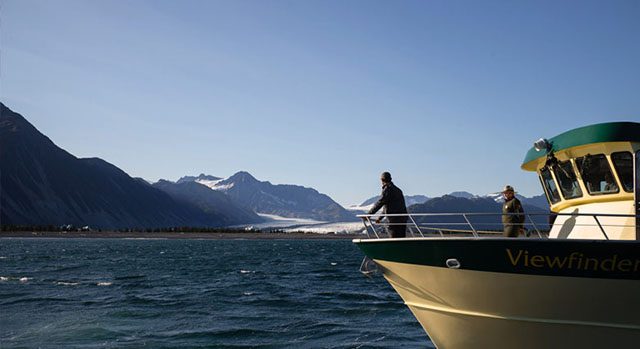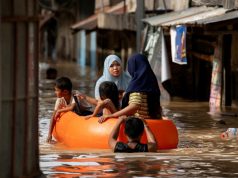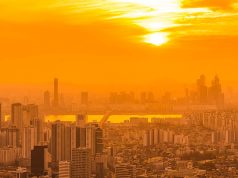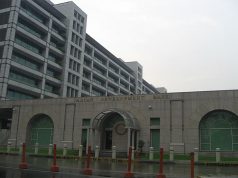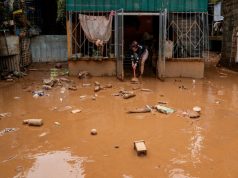THE HAGUE — Militaries must prepare now to deal with more frequent disasters, new conflicts and other risks as accelerating climate change brings threats that could draw in troops at home and abroad, military and defense officials said.
“The threats are real. We already see them. And the threats will grow as the temperature rises,” warned James Clayden, of the Netherlands Ministry of Defence, speaking at a conference on climate change and security at The Hague this week.
About a thousand Dutch troops, for instance, were called out for a month to provide humanitarian help and security when powerful Hurricane Irma slammed into Sint Maarten, a Caribbean island that is part of the Netherlands, in 2017.
That was manageable – but as hurricane disasters become more frequent and devastating, as warming oceans spur larger storms, the pressures on military resources will grow, as will the costs, Clayden said.
Jane Neilson, a senior policy analyst for the New Zealand Ministry of Defence, said her country’s military forces regularly turn out to help South Pacific island neighbors hit by cyclones and other disasters.
But New Zealand officials worry that the country’s relatively small forces could struggle to cope with bigger, harsher and more frequent disasters or the threat of several crises happening at once.
“Our worst nightmare” is another big earthquake hitting New Zealand just as a Category 5 hurricane hits the South Pacific she said.
“Globally, militaries are going to be more stretched with operations deriving from climate-induced impacts,” she said, calling climate change “the single greatest threat to the security, livelihoods and well-being of people of the Pacific”.
For many nations, threats at home are also growing. The Hague sits 3 meters (10 feet) below sea level, protected by a system of dikes and pumping stations, said retired General Tom Middendorp, a former Dutch defense chief.
Dutch forces already spend about 25 percent of their efforts supporting civil authorities, including by protecting the anti-flood systems, Middendorp said.
But if sea level rises significantly — by a meter or more by the turn of the century, under some scenarios — “imagine the impact it could have. The military needs to be ready for that,” he told the Thomson Reuters Foundation.
“It’s crucial in any country that the civil responders and military sit together and do risk analysis, see how they will cope in an emergency and translate that into standing arrangements,” the general said.
US politics
In the United States, such preparations have been difficult, despite worsening floods, wildfires and storms, because President Donald Trump’s administration has been reluctant to accept climate change as a risk, military officials said.
In fact, the White House is readying a presidential panel that would question U.S. military and intelligence reports showing human-driven climate change poses risks to national security, according to a document seen by Reuters this week.
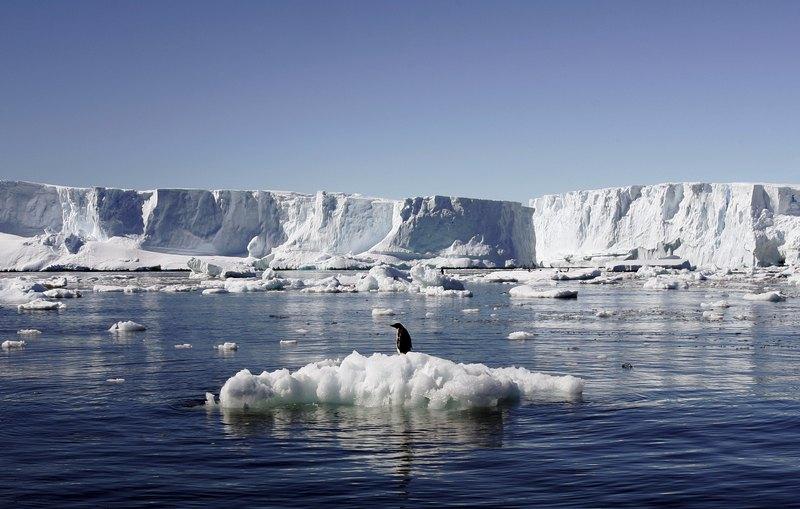
But retired U.S. Navy Rear Admiral Ann C. Phillips, who sits on the advisory board of the U.S.-based Center for Climate and Security, said climate threats — including to the country’s military facilities — are clear, and the forces are already addressing them.
That includes preparing bases for expected sea level rise and providing better flooding protections, as well as working to cut emissions from military operations.
“We are moving forward on this issue. We are being impacted by it and we can’t deny it,” she said, pointing to bases on the country’s eastern and Gulf coasts already hard hit by floods and storms.
Middendorp said it’s key for countries to understand that it will not be only poorer and more vulnerable nations hard hit by climate change.
“It will affect all countries with a coastline, all islands. Countries that up until now have been very peaceful will now be in harm’s way,” the general warned.
He urged politicians to put aside political divides to tackle the increasingly evident risks.
“Climate change was always a left-wing issue and security was a right-wing, hard-liner issue. We were completely different worlds — but we’ve learned to appreciate each other,” he said.
Now, looking at both issues together is “of essential importance to everyone, regardless of your political background. We should de-politicize this,” he urged.
Conflict risks
Climate change threatens to drive violence and conflict that could spill over borders or draw in other countries as it brings worsening food and water shortages, more migration and other pressures, Middendorp said.
Clayden, of the Dutch defense ministry, pointed to Egypt, which he said will face losses of land to sea level rise and growing water security threats in an already fragile political climate.
“What will happen there? We don’t know. But are we already preparing to take measures? No, we’re not. We as a Ministry of Defense are reacting to the problems of today, which for us is Venezuela,” he said.
“We know it’s a problem, we know it will impact on the security situation, but we are not tackling it,” he said.
Middendorp said he saw similar risks in a range of places, particularly Africa and the Middle East “where big rivers are drying out, the population is increasing, demand is piling up and we can’t supply them with water and food,” he said.
Some of the countries “also have poor governments, internal tensions, poor security,” he said. “This fuels tension, drives migration flows, creates grounds for terrorists and extremism.”
Azzam Alwash, the Iraqi founder and CEO of Nature Iraq, which has advised on restoration of Iraq’s southern marshes, said rising population in his country, combined with collapsing agriculture as droughts worsen and uncertain oil revenue, meant migration to Europe was likely to surge.
“If you think 2016-2017, where you had waves of migrants coming up, was bad, wait until 2030. That’s just around the corner,” he said.
When it comes to climate security risks, “it’s time states wake up,” he said. — Reporting by Laurie Goering; Editing by Jason Fields

